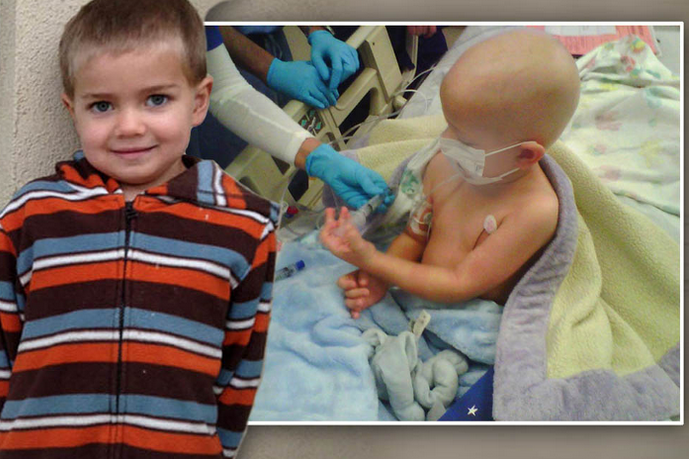California Dad Calls For Herd Immunity To Protect Son, A Cancer Survivor, At School

The choice of whether or not to vaccinate a child has sparked controversy over the past few years, especially in the state of California. With a statewide average 2.5 percent rate of personal belief exemption — lawfully allowing parents to send their unvaccinated children to school — and a 6.45 percent rate in cities like the Bay Area, young cancer survivors like Rhett Krawitt, 6, are at high risk. For that reason, Rhett’s father, Carl Krawitt, called upon the Marin school district to require immunization as a condition of attendance to protect the leukemia cancer suvivor’s vulnerable immune system at school.
"If you choose not to immunize your own child and your own child dies because they get measles, OK, that's your responsibility, that's your choice. But if your child gets sick and gets my child sick and my child dies, then ... your action has harmed my child," Krawitt told NPR. Currently, Rhett’s school Reed Elementary in Tiburon has a seven percent personal belief exemption rate. This has led Krawitt to work closely with the school nurse to make all the children in his son’s class are fully vaccinated. So far the school has been very helpful and accommodating.
While it would make sense for Rhett to get immunized, he can’t — at least not yet. He cannot be vaccinated because his immune system is still rebuilding, and it could take months more before his body is healthy enough to get all his immunizations. Children like Rhett who have no completed primary immunizations are particularly susceptible to vaccine-preventable infection, according to Practical Vaccination Guidelines for Children with Cancer.
Rhett’s cancer chemotherapy has suppressed his immune response, taking three months or more to recover normal immune function. Dr. Robert Goldsby, the boy’s oncologist at the University of California, San Francisco, told NPR he is likely at higher risk of complications if he were to get measles. "It's not just Rhett. There are hundreds of other kids in the Bay Area that are going through cancer therapy, and it's not fair to them. They can't get immunized; they have to rely on their friends and colleagues and community to help protect them,” he said. This is known as herd immunity.
Dad of cancer survivor asks school to protect son - by banning unvaccinated kids http://t.co/njjetNmozl pic.twitter.com/SeGffhHn49
— Daily Mirror (@DailyMirror) January 28, 2015Right now, there are no cases of measles anywhere in Marin and no suspected cases either. However, Matt Willis, Marin County health officer, suggests if there is an outbreak, requiring unvaccinated children to stay home even without confirmed cases at a specific school could be a possibility.
Laura Bredesen, a former anti-vaxxer from Minneapolis, Minn., did not think about how her choice to vaccinate her children affected anyone but her own children until the measles was brought close to her son Ben. In 2010, 2-year-old Ben, was diagnosed with acute lymphoblastic leukemia (ALL), leaving his immune system compromised. It was not until days after his chemotherapy treatment that Ben’s family was informed that a child in the same unit had been diagnosed with measles. Ben could have breathed air containing the measles virus. “It is more than enough to ask a young child to fight leukemia, but to ask him to fight a vaccine-preventable disease on top of it? It is unconscionable,” Bredesen wrote in a blog post for Voices for Vaccines.
Measles is a dangerous infectious viral disease but preventable with vaccination. The measles vaccine is typically given at an early age and through a series of rounds, but a person is not considered to be fully vaccinated until they complete the round of doses. The vaccine is administered as a MMR — a combination vaccine that provides multiple protection against measles, mumps, and rubella. The first dose is usually administered at 12 to 15 months of age and followed at 4 to 6 years of age.
Krawitt will continue his fight with the school district to protect Rhett’s life.



























